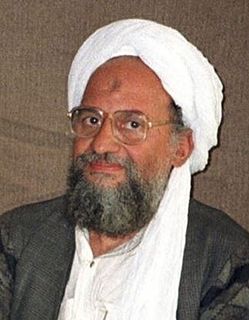 W
WUmdat as-Salik wa 'Uddat an-Nasik is a classical manual of fiqh for the Shafi'i school of Islamic jurisprudence. The author of the main text is 14th-century scholar Shihabuddin Abu al-'Abbas Ahmad ibn an-Naqib al-Misri. Al-Misri based his work on the previous Shafi'i works of Imam Nawawi and Imam Abu Ishaq as-Shirazi, following the order of Shirazi's al-Muhadhdhab and the conclusions of Nawawi's Minhaj at-Talibin.
 W
WAthanasius of Alexandria, also called Athanasius the Great, Athanasius the Confessor or, primarily in the Coptic Orthodox Church, Athanasius the Apostolic, was the 20th bishop of Alexandria. His intermittent episcopacy spanned 45 years, of which over 17 encompassed five exiles, when he was replaced on the order of four different Roman emperors. Athanasius was a Christian theologian, a Church Father, the chief defender of Trinitarianism against Arianism, and a noted Egyptian leader of the fourth century.
 W
WTitus Flavius Clemens, also known as Clement of Alexandria, was a Christian theologian and philosopher who taught at the Catechetical School of Alexandria. Among his pupils were Origen and Alexander of Jerusalem. A convert to Christianity, he was an educated man who was familiar with classical Greek philosophy and literature. As his three major works demonstrate, Clement was influenced by Hellenistic philosophy to a greater extent than any other Christian thinker of his time, and in particular, by Plato and the Stoics. His secret works, which exist only in fragments, suggest that he was familiar with pre-Christian Jewish esotericism and Gnosticism as well. In one of his works he argued that Greek philosophy had its origin among non-Greeks, claiming that both Plato and Pythagoras were taught by Egyptian scholars.
 W
WDidymus the Blind was a Christian theologian in the Church of Alexandria, where he taught for about half a century. He was a student of Origen, and, after the Second Council of Constantinople condemned Origen, Didymus's works were not copied. Many of his writings are lost, but some of his commentaries and essays survive. He was intelligent and a good teacher, but not especially original.
 W
WPope Heraclas was the 13th Pope and Patriarch of Alexandria, reigning 232-248.
 W
WOrigen of Alexandria, also known as Origen Adamantius, was an early Christian scholar, ascetic, and theologian who was born and spent the first half of his career in Alexandria. He was a prolific writer who wrote roughly 2,000 treatises in multiple branches of theology, including textual criticism, biblical exegesis and hermeneutics, homiletics, and spirituality. He was one of the most influential figures in early Christian theology, apologetics, and asceticism. He has been described as "the greatest genius the early church ever produced".
 W
WAl-Suyuti ; aka Jalaluddin; was an Egyptian scholar, historian and jurist. From a family of Persian origin, he was described as one of the most prolific writers of the Middle Ages. His biographical dictionary Bughyat al-wuʻāh fī ṭabaqāt al-lughawīyīn wa-al-nuḥāh contains valuable accounts of prominent figures in the early development of Arabic philology. He was appointed to a chair in the mosque of Baybars in Cairo in 1486, and was an authority of the Shafii school of thought (madhhab).
 W
WAyman Mohammed Rabie al-Zawahiri is an Egyptian terrorist known for being the leader of terrorist group al-Qaeda since June 2011, succeeding Osama bin Laden following his death, and is a current or former member and senior official of Islamist organizations which have orchestrated and carried out attacks in Asia, Africa, and the Middle East and also some in North America and Europe. In 2012, he called on Muslims to kidnap Western tourists in Muslim countries.